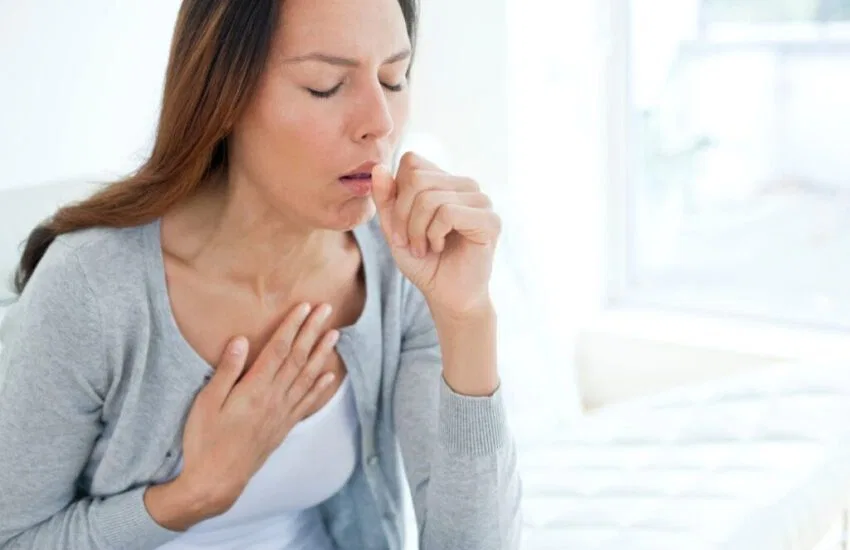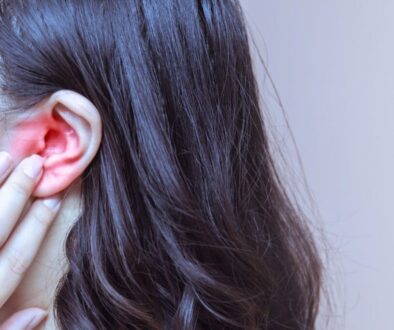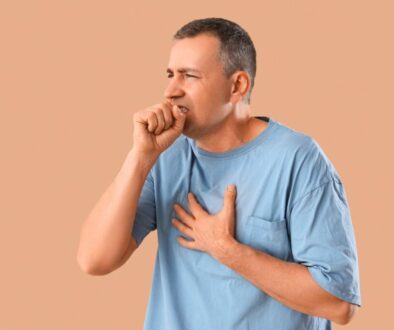Can Dehydration Cause Coughing? Let’s Break It Down

Published August 27, 2025
A nagging cough can be frustrating, especially when you don’t feel sick. But have you ever wondered, can dehydration cause coughing? That tickle in your throat might not just be random. While dehydration doesn’t directly cause coughing, it can dry out your throat, making a cough more likely. Understanding how hydration affects your body could be the key to managing that annoyance—and improving your well-being.
To set the stage, let’s look at how dehydration affects your body, its indirect relationship with coughing, and practical steps for prevention and treatment. In the following sections, you’ll find guidance on rehydrating effectively and other techniques for soothing throat irritation for lasting relief.
What Is Dehydration?
Dehydration occurs when your body starts losing more fluids than it consumes. Water is essential for regulating temperature, lubricating joints, and keeping your organs working properly. Without enough hydration, these processes can falter, leading to potential issues.
Dehydration is common in hot weather. It can also happen during intense physical activity. Illnesses like fever or vomiting increase the risk. Additionally, not drinking enough water during the day is another cause.
Identifying The Symptoms Of Dehydration
Spotting the early signs of dehydration is crucial. Symptoms can range from trivial to severe, depending on the extent of fluid loss in your body. Recognizing these indicators promptly can help prevent more serious health issues.
Mild to moderate symptoms of dehydration:
- Persistent thirst
- A dry or sticky feeling in the mouth
- Reduced frequency of urination
- Urine that appears dark yellow or amber
- Dry, less elastic skin
- Headaches
- Muscle cramps
Severe symptoms of dehydration (medical emergency):
- Minimal or no urination, or urine that’s extremely dark
- Skin that remains pinched and doesn’t bounce back (poor skin elasticity)
- Dizziness or feelings of lightheadedness
- Rapid heartbeat or quickened breathing
- Sunken eyes
- Extreme fatigue, confusion, irritability, or lethargy
- Loss of consciousness or fainting
Knowing these symptoms early can help prevent complications. If severe dehydration is suspected, seek medical care immediately.

Dehydration And Coughing — What’s The Link?
Coughing isn’t a common dehydration symptom, but there’s a connection. A dry, ticklish throat can result from a lack of fluids.
Why Dehydration Isn’t A Direct Cause Of Dehydration
Dehydration doesn’t directly activate the cough reflex. A cough is your body’s defense to clear the airways. While coughing isn’t a listed dehydration symptom, fluid loss can subtly affect body processes related to coughing.
How Dehydration Can Indirectly Trigger Coughing
The link between dehydration and coughing lies in the role of mucus. Your respiratory system has a thin layer of mucus. It traps dust, pollen, and irritants to protect your lungs. Staying hydrated keeps this mucus thin and fluid. This allows it to move easily and clear without effort—often without you noticing.
When dehydrated, your body conserves water, making mucus thicker and stickier. This mucus lingers in your airways, irritating your throat and triggering coughs. The effect is especially noticeable during respiratory infections or allergies.
Supporting upper respiratory balance with an oral probiotic may help promote a healthy environment in the mouth and throat, which in turn may help with comfort during dehydration-related throat irritation.
Preventing And Treating A Dehydrating-Related Cough
If dehydration is causing your cough, focus on two things: rehydrate your body and soothe your throat irritation.
Effective Hydration
- Stay tuned in to your body’s signals: When you feel thirsty, that’s your cue to hydrate. Carry a water bottle as a practical reminder to keep sipping throughout the day.
- Hydrate during activity: Exercise leads to fluid loss through sweat, so replenishing fluids is essential. Drink water before, during, and after workouts, especially if your sessions are prolonged or intense.
- Monitor mouth moisture: A simple way to check hydration status is by noticing how your mouth feels. If you notice dryness or stickiness, it’s a clear sign to reach for water.
- Replenish electrolytes when necessary: For extended exercise or heavy sweating, your body may lose important electrolytes like sodium. In such cases, choose a sports drink or electrolyte supplement to support rehydration.
Soothe Cough And Throat Irritation
- Introduce moisture to the air: Dry air can aggravate a sore throat and make mucus thicker. Use a humidifier or take a steam shower to increase humidity, making it easier to breathe and loosen mucus.
- Gargle with warm salt water: Prepare a warm salt water solution. It’s a proven remedy for sore throats. It breaks down thick mucus and soothes irritation.
- Avoid smoking and vaping: Smoke and vapor can damage the cilia in your lungs—tiny hairs that clear mucus. Steering clear of these irritants allows your body to heal more effectively.
- Raise your head while sleeping: Utilize an extra pillow to prop up your head during sleep. This prevents the pooling of mucus in your throat, which can trigger nighttime coughing.
- Limit allergen exposure: If allergies are causing excess mucus, reduce your exposure to triggers. Use a HEPA filter vacuum, wash bedding in hot water, and disinfect mold-prone areas with bleach.
- Try a nasal rinse: Saline sprays and neti pots can help clear mucus and allergens. They reduce postnasal drip and ease coughing.
- Consider over-the-counter remedies: For throat irritation and coughing, try OTC options. Low-dose aspirin or soothing lozenges can provide quick relief.
- Explore probiotics for respiratory health: Oral probiotics may help support the natural balance of your oral and respiratory microbiome. Products like Bionaze, which include BLIS K12 and BL-04, are designed to help promote a healthy environment in the ear, nose, and throat. By supporting overall oral and respiratory health, these probiotics may help maintain comfort, especially when dealing with throat irritation and mucus.
Frequently Asked Questions
Is a dry cough linked to dehydration?
While dehydration isn’t a direct cause of a dry cough, it can play a role. When dehydrated, your throat can become dry and irritated, causing a persistent tickly cough.
Can drinking water help relieve a cough?
Yes. Keeping your body hydrated helps thin mucus, making it easier for your body to clear it from your airways. Hydration also soothes an irritated throat. For added comfort, warm drinks like herbal tea with honey or clear soups can be especially soothing.
Why am I coughing persistently even though I’m not sick?
A lingering cough doesn’t always indicate illness. Common causes include postnasal drip, asthma, acid reflux (GERD), or environmental irritants like dust or smoke. While dehydration can exacerbate these issues, it’s rarely the primary cause.
What are two clear warning signs of dehydration?
Two key indicators of dehydration are intense thirst and dark yellow, low-volume urine. These are your body’s way of signaling the need to increase your fluid intake.
Why Choose Bionaze
Maintaining long-term respiratory and oral health requires more than just staying hydrated. Bionaze, an advanced oral probiotic, is formulated with BLIS K12™ (Streptococcus salivarius K12) and BL-04™ (Bifidobacterium Lactis BL-04) to address a variety of chronic issues, including those affecting the sinuses, ears, nose, throat, mouth, gums, and teeth. By restoring balance to your oral and respiratory microbiome, Bionaze supports healthier airways and enhances overall well-being from the inside out.

Stay Hydrated, Breathe Easier, And Support Your Respiratory Health
Can dehydration cause coughing? While it doesn’t directly cause coughing, it can dry your throat and thicken mucus, leading to irritation. Staying hydrated and using remedies like saltwater gargles can help. Drinking enough water supports your respiratory system.
While hydration and remedies help, supporting respiratory health may also benefit from oral probiotics like Bionaze, which contains BLIS K12 and BL-04. These probiotics are intended to promote oral and respiratory health by supporting a balanced microbiome in the ear, nose, throat, and mouth. Learn more about Bionaze today!
Benefit From The Latest Advancements In Probiotic Science With Bionaze
Bionaze is a proprietary blend of probiotics proven to promote ear, nose, and throat health, improve digestion, and support your immune system. The active ingredients BLIS K12, and BL-04 are considered among the best probiotics according to science.
Get 25% Off Your First Order when you use BIO25 at checkout!

This Content Has Been Reviewed For Factual Accuracy
This content has undergone thorough fact-checking by our team of internal experts. Learn more about the meticulous editorial standard for our website here.
ADVERTISEMENT

About The Author
Hi, I’m Corinne Grace, a proud nursing graduate from Riverside College with a flair for writing. I specialize in health and wellness topics, using my educational background to weave informative and attention-grabbing articles that appeal to a wide variety of readers.




